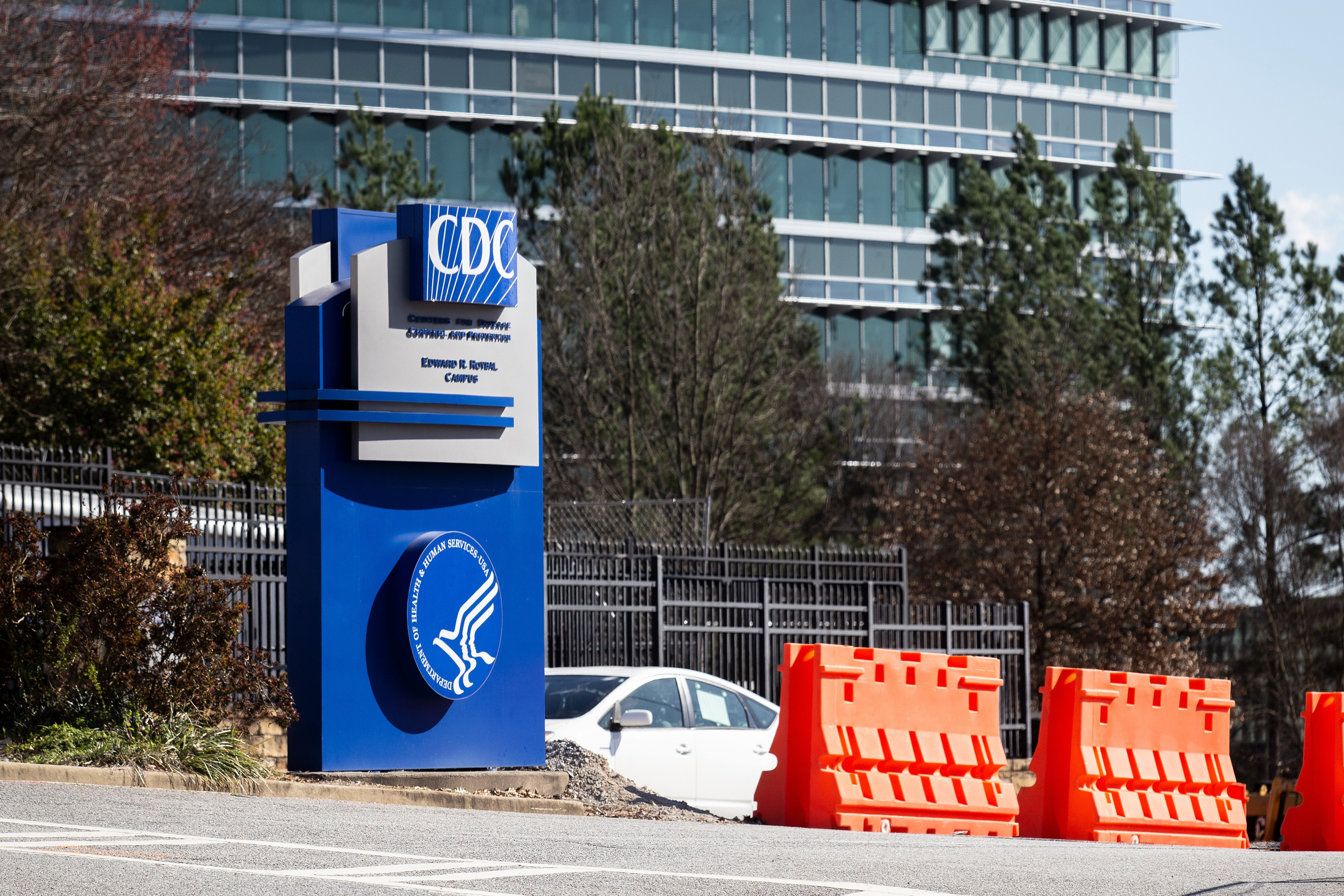CDC provides 'crucial' COVID-19 guidance update acknowledging airborne transmission


A free daily email with the biggest news stories of the day – and the best features from TheWeek.com
You are now subscribed
Your newsletter sign-up was successful
The Centers for Disease Control and Prevention on Friday updated its public COVID-19 guidance to explicitly state that the coronavirus can be transmitted via aerosols — smaller respiratory particles that can float — that are inhaled at a distance greater than six feet from an infected person. The risk is higher while indoors, bringing ventilation practices to the forefront. The new language marks a change from the federal health agency's previous stance that transmission of the virus typically occurs through "close contact, not airborne transmission."
Infectious disease experts have warned that the CDC and the World Health Organization (which has also updated its guidance) were overlooking evidence of airborne transmission during the pandemic, The New York Times notes, and some have stressed the need for the CDC to strengthen its recommendations for preventing exposure to aerosolized virus, especially in indoor workplaces like meatpacking plants.
Good ventilation should be one of the primary things to focus on, Dr. David Michaels, an epidemiologist at George Washington School of Public Health and the head of the Occupation and Safety Health Administration during the Obama administration, told the Times. Dr. Linsey Marr, an aerosol expert at Virginia Tech, explained that "if you're in a poorly ventilated environment, virus is going to build up in the air, and everyone who's in that room is going to be exposed."
The Week
Escape your echo chamber. Get the facts behind the news, plus analysis from multiple perspectives.

Sign up for The Week's Free Newsletters
From our morning news briefing to a weekly Good News Newsletter, get the best of The Week delivered directly to your inbox.
From our morning news briefing to a weekly Good News Newsletter, get the best of The Week delivered directly to your inbox.
Sociologist Zeynep Tufekci, who has long been pushing for such a change, called it "one of the most crucial scientific advancements of the pandemic" that should provide a lot of clarity about what is and isn't safe going forward. Read her Twitter thread on the issue here and learn more at The New York Times. Tim O'Donnell
A free daily email with the biggest news stories of the day – and the best features from TheWeek.com
Tim is a staff writer at The Week and has contributed to Bedford and Bowery and The New York Transatlantic. He is a graduate of Occidental College and NYU's journalism school. Tim enjoys writing about baseball, Europe, and extinct megafauna. He lives in New York City.
-
 What to know before filing your own taxes for the first time
What to know before filing your own taxes for the first timethe explainer Tackle this financial milestone with confidence
-
 The biggest box office flops of the 21st century
The biggest box office flops of the 21st centuryin depth Unnecessary remakes and turgid, expensive CGI-fests highlight this list of these most notorious box-office losers
-
 The 10 most infamous abductions in modern history
The 10 most infamous abductions in modern historyin depth The taking of Savannah Guthrie’s mother, Nancy, is the latest in a long string of high-profile kidnappings
-
 Trump HHS slashes advised child vaccinations
Trump HHS slashes advised child vaccinationsSpeed Read In a widely condemned move, the CDC will now recommend that children get vaccinated against 11 communicable diseases, not 17
-
 FDA OKs generic abortion pill, riling the right
FDA OKs generic abortion pill, riling the rightSpeed Read The drug in question is a generic version of mifepristone, used to carry out two-thirds of US abortions
-
 RFK Jr. vaccine panel advises restricting MMRV shot
RFK Jr. vaccine panel advises restricting MMRV shotSpeed Read The committee voted to restrict access to a childhood vaccine against chickenpox
-
 Texas declares end to measles outbreak
Texas declares end to measles outbreakSpeed Read The vaccine-preventable disease is still spreading in neighboring states, Mexico and Canada
-
 RFK Jr. shuts down mRNA vaccine funding at agency
RFK Jr. shuts down mRNA vaccine funding at agencySpeed Read The decision canceled or modified 22 projects, primarily for work on vaccines and therapeutics for respiratory viruses
-
 Measles cases surge to 33-year high
Measles cases surge to 33-year highSpeed Read The infection was declared eliminated from the US in 2000 but has seen a resurgence amid vaccine hesitancy
-
 Kennedy's vaccine panel signals skepticism, change
Kennedy's vaccine panel signals skepticism, changeSpeed Read RFK Jr.'s new vaccine advisory board intends to make changes to the decades-old US immunization system
-
 Kennedy ousts entire CDC vaccine advisory panel
Kennedy ousts entire CDC vaccine advisory panelspeed read Health Secretary RFK Jr. is a longtime anti-vaccine activist who has criticized the panel of experts
